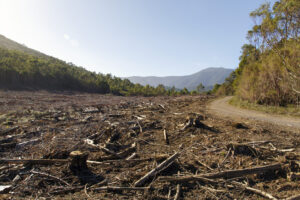Nordic Talks: The Role of First Nations Communities in the Clean Energy Transition [Webinar]
Australia has all the ingredients for a green industrial revolution; abundant rare minerals, plentiful wind and sun, manufacturing capabilities, while Sweden is a global leader in green industry practices and production.
But how can First Nations communities participate in the clean energy transition?
This talk will unpack how Sweden and Australia can better balance the competing interests between the ‘green gold rush’ and the interests of First Nations communities.
This is one of a five-part special series of Follow the Money presented by the Nordic Talks series, presented by the Nordic Policy Centre at the Australia Institute, with support from The Nordics, a project under The Nordic Council of Ministers.
#NordicTalks #auspol
The Australia Institute // @theausinstitute
Guests:
Jenny Wik Karlsson, CEO & Senior legal adviser at Sámiid Riikasearvi (National Association of Sámi in Sweden)
Chris Croker, Managing Director, Impact Investment Partners and First Nations Clean Energy Network Steering Group
Rod Campbell, research director at the Australia Institute // @R_o_d_C
Host: Ebony Bennett, Deputy Director, the Australia Institute // @ebony_bennett
Producer: Jennifer Macey // @jennifermacey
Edited by: Emily Perkins
Theme Music: Pulse and Thrum; additional music by Blue Dot Sessions
Between the Lines Newsletter
The biggest stories and the best analysis from the team at the Australia Institute, delivered to your inbox every fortnight.
You might also like
Dutton’s nuclear push will cost renewable jobs
Dutton’s nuclear push will cost renewable jobs As Australia’s federal election campaign has finally begun, opposition leader Peter Dutton’s proposal to spend hundreds of billions in public money to build seven nuclear power plants across the country has been carefully scrutinized. The technological unfeasibility, staggering cost, and scant detail of the Coalition’s nuclear proposal have
Unfinished Business: Towards a settlement on Aboriginal land rights in the ACT
The Australia Institute has today published a discussion paper on the barriers to progress on Aboriginal land rights in the ACT. The paper explores the issues that need to be resolved before the ACT Government can make progress on treaty discussions. Key Findings: The transfer of the land of the ACT from NSW to the
Five priorities for the next parliament if we want a liveable Australia
Climate and nature crises won’t pause while politics plays out.




